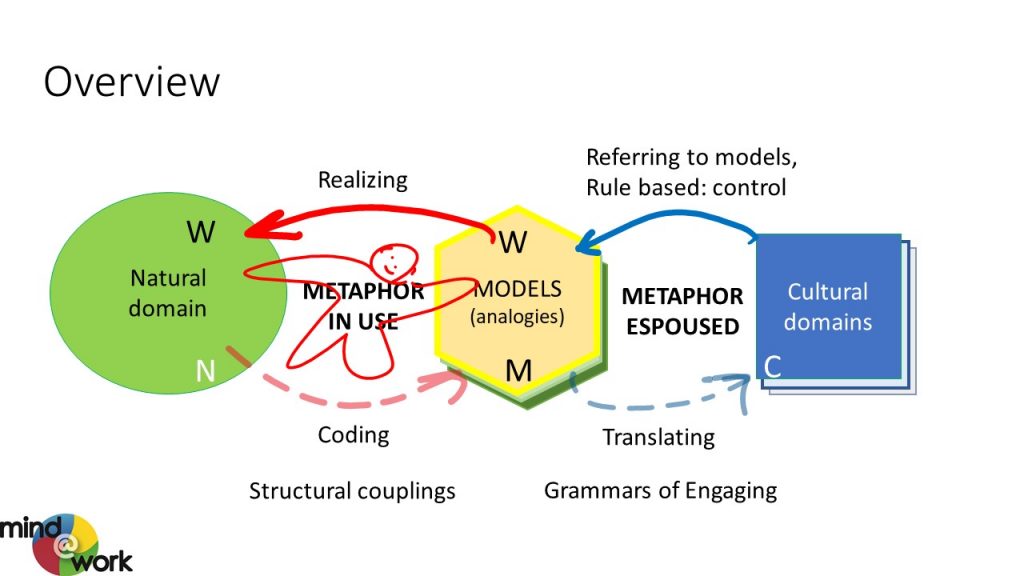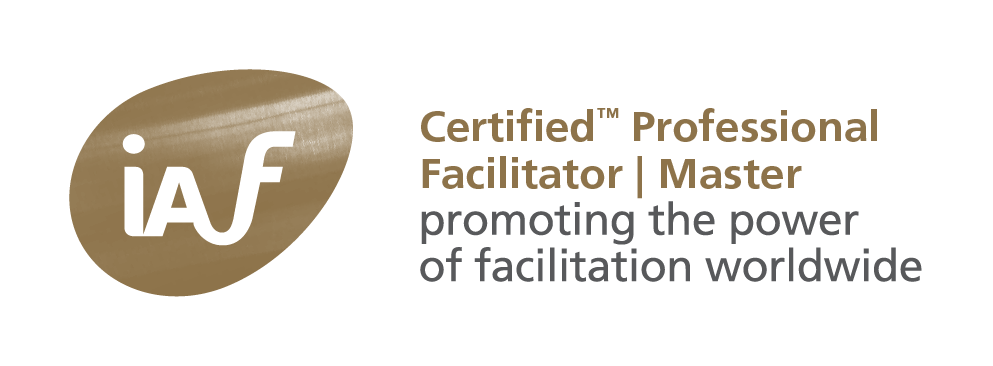Releasing the Powers of Facilitation
This will be the landing page for the web site about the Body of Practice, an inventory of ways and means to facilitate groups, organizations and (social, cultural, political) change.
For more information, please contact me: janlelie@mindatwork.nl

Your body knows. Any body knows through practice. You practice yourself in what I like to call “Natural Domains, N”. In practicing, working with, your body, you induce – invent and realize – your “self”. You experience this “self” as your mind or consciousness.
Through practice, your brain produces a model (models, or maps, or “minds”, …M ) of your body, using these models expectations or predictions of the “future”. These process I call “coding“. You decode these models while enacting and realizing yourself in the Natural Domain. Like using maps to travel through a terrain.
Your body acts as both a concrete “body” in a domain and as a metaphor-in-use. Imagine your body like a model or map of the domain. The structure of a map accounts for its usefulness, so also the structure of your body “makes you useful”.
Metaphor is Greek for “to carry (phora) over (meta)”. Like the word trans-port and trans-late – I’ll need that word shortly. Your body both “transports you” and carries over your messages, from and to the domain or environment or context. You need those “maps”, “models” or “Gestalts”, to “self-realize” your domain.
Human beings have added several other layers of metaphors, expressed in language. Images translated by groups – called “cultural domains” – refer to those images. In closing the cycles you refer to those models.
In Body of Practice we describe what a Community of Practicehas learned from over 10 years of practical experience in (social) innovation and facilitation. As with every practice, transferring knowledge through a book is inadequate. The more so because, in the words of Prof dr Thijs Homan, facilitation is based on Phronèsis.
Phronesis (Ancient Greek: φρόνησῐς, romanized: phrónēsis) is an ancient Greek word for a type of wisdom or intelligence. It is more specifically a type of wisdom relevant to practical action, implying both good judgement and excellence of character and habits, sometimes referred to as “practical virtue”. Phronesis was a common topic of discussion in ancient Greek philosophy.




